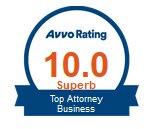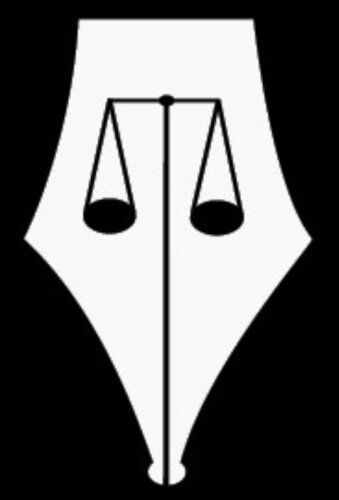Best Communications & Media Law Lawyers in Minnesota
Share your needs with us, get contacted by law firms.
Free. Takes 2 min.
Or refine your search by selecting a city:
List of the best lawyers in Minnesota, United States
About Communications & Media Law in Minnesota, United States
Communications and Media Law encompasses the rules and regulations that govern the transmission of information through various channels such as newspapers, television, radio, the Internet, and mobile communication in Minnesota. This area of law addresses issues like freedom of speech and the press, broadcast licensing, advertising, privacy, libel and slander, data protection, and access to public records. Both federal and state laws apply, making the landscape complex for journalists, broadcasters, businesses, and individuals in Minnesota. State-specific nuances make it essential to understand local statutes and how they interact with federal rules.
Why You May Need a Lawyer
Engaging a Communications and Media Law attorney in Minnesota may be crucial in several situations, including:
- Being accused of publishing defamatory content in print, digital, or broadcast form.
- Facing issues regarding invasion of privacy through news stories, photography, or data leaks.
- Navigating licensing and regulatory challenges with the Federal Communications Commission (FCC) or Minnesota state agencies.
- Launching or operating broadcasting stations or online media outlets.
- Facing copyright or trademark infringement claims involving media content.
- Responding to demands for retraction, correction, or removal of published information.
- Defending against government requests for reporter’s notes or confidential sources.
- Dealing with advertising regulations including false advertising allegations.
- Pursuing access to public information and government records under Minnesota data practices laws.
- Understanding emerging issues around social media use and online speech.
A qualified attorney can provide critical guidance and protect your interests in these and other situations.
Local Laws Overview
In Minnesota, Communications and Media Law reflects a combination of federal standards and state-specific rules. Some key elements include:
- The Minnesota Constitution and state statutes recognize freedom of speech and press, alongside the First Amendment of the U.S. Constitution.
- Libel and slander cases are primarily governed by state law. Minnesota sets the legal boundaries for defamation, including what counts as actionable harm and available defenses such as truth or fair reporting privilege.
- Reporters and journalists have certain protections under Minnesota’s Shield Law, which limits circumstances where courts can compel disclosure of confidential sources.
- The Minnesota Government Data Practices Act (MGDPA) establishes rights to access public records and defines how government agencies handle information.
- State and federal authorities regulate broadcast licensing, spectrum use, and advertising, including rules overseen by the FCC and Minnesota Department of Commerce.
- Privacy is a significant concern, with both state and federal laws governing telephone usage, internet communications, and data collection practices.
- Obscenity, indecency, and advertising for controlled substances are subject to stricter rules in Minnesota compared to some other states.
Understanding how these laws apply in practice often requires professional legal interpretation.
Frequently Asked Questions
What is considered defamation in Minnesota?
Defamation includes both libel (written statements) and slander (spoken statements) that harm the reputation of an individual or organization. In Minnesota, the statement must be false, published to a third party, and result in injury for it to be actionable. Opinions, as opposed to asserted facts, are not usually grounds for defamation.
How do Minnesota’s Shield Laws protect journalists?
Minnesota's Shield Laws protect journalists from being forced to reveal confidential sources or unpublished material in many circumstances. However, there are exceptions, especially if disclosure is vital to a legal case and cannot be obtained elsewhere.
What rights do I have to access public records in Minnesota?
The Minnesota Government Data Practices Act gives the public broad rights to access government records, though there are exemptions for sensitive information such as certain law enforcement, health, and educational data.
Can someone sue me for something I posted on social media?
Yes, you can be sued if your post is found to be defamatory, invades privacy, or violates other laws. Social media content is treated similarly to other published materials under defamation and privacy laws.
What steps should I take if I receive a cease-and-desist letter for alleged defamation?
Do not ignore the letter. Consult a Communications and Media Law attorney to assess the claim and craft a response. They can help determine the validity of the request and advise you on minimizing legal risks.
Are there specific advertising laws in Minnesota?
Yes, Minnesota enforces laws against false or misleading advertising. Regulations cover truth-in-advertising, endorsements, and specific restrictions for pharmaceuticals, alcohol, tobacco, and certain other industries.
How does Minnesota regulate broadcasting licenses?
Broadcast licensing is primarily overseen by the Federal Communications Commission, but Minnesota state agencies may have additional requirements, such as business licensing or specific operational restrictions for broadcasters within the state.
What is the statute of limitations for defamation in Minnesota?
In Minnesota, the statute of limitations for initiating a defamation lawsuit is generally two years from the date the alleged defamatory statement was published or spoken.
Is recording phone calls legal in Minnesota?
Minnesota is a one-party consent state, which means you can record a conversation if at least one party to the call (which could be you) consents, unless federal law requires otherwise.
What should media outlets do to avoid legal problems while reporting?
Media outlets should fact-check information, avoid publishing private or sensitive data without consent, understand fair reporting and defamation risks, and train staff on relevant laws and ethics. Legal review is advised for potentially controversial stories.
Additional Resources
If you are seeking more information or guidance, the following resources may be helpful:
- Minnesota Statutes Chapter 13 - Minnesota Government Data Practices Act
- Office of the Minnesota Attorney General - Resources on privacy, defamation, and data practices
- Federal Communications Commission (FCC) - Licensing and broadcast standards
- Society of Professional Journalists, Minnesota Chapter
- Minnesota State Bar Association - Media and Communications Law Section
- Better Business Bureau of Minnesota and North Dakota for advertising disputes
- National Freedom of Information Coalition for public records guidance
Next Steps
If you are facing a legal issue in the field of Communications and Media Law in Minnesota, consider taking these actions:
- Document all relevant facts, communications, and materials related to your situation.
- Contact an attorney with experience in Communications and Media Law for an initial consultation. Many offer free or low-cost first discussions.
- If your matter involves public agencies, make formal requests in writing and keep copies of all correspondence.
- Do not delete or alter potentially relevant communications or digital posts until you have consulted an attorney.
- Familiarize yourself with your rights under local and federal law using the resources listed above.
- If you work for a media or communications organization, alert your employer’s legal or compliance team immediately about any legal concern or request from authorities.
- Stay informed about changes in Minnesota law that could affect your rights and obligations as they pertain to speech, privacy, and media practices.
Acting quickly and seeking professional legal guidance are the best steps to protect yourself and your interests.
Lawzana helps you find the best lawyers and law firms in Minnesota through a curated and pre-screened list of qualified legal professionals. Our platform offers rankings and detailed profiles of attorneys and law firms, allowing you to compare based on practice areas, including Communications & Media Law, experience, and client feedback.
Each profile includes a description of the firm's areas of practice, client reviews, team members and partners, year of establishment, spoken languages, office locations, contact information, social media presence, and any published articles or resources. Most firms on our platform speak English and are experienced in both local and international legal matters.
Get a quote from top-rated law firms in Minnesota, United States — quickly, securely, and without unnecessary hassle.
Disclaimer:
The information provided on this page is for general informational purposes only and does not constitute legal advice. While we strive to ensure the accuracy and relevance of the content, legal information may change over time, and interpretations of the law can vary. You should always consult with a qualified legal professional for advice specific to your situation.
We disclaim all liability for actions taken or not taken based on the content of this page. If you believe any information is incorrect or outdated, please contact us, and we will review and update it where appropriate.
Browse communications & media law law firms by city in Minnesota
Refine your search by selecting a city.









